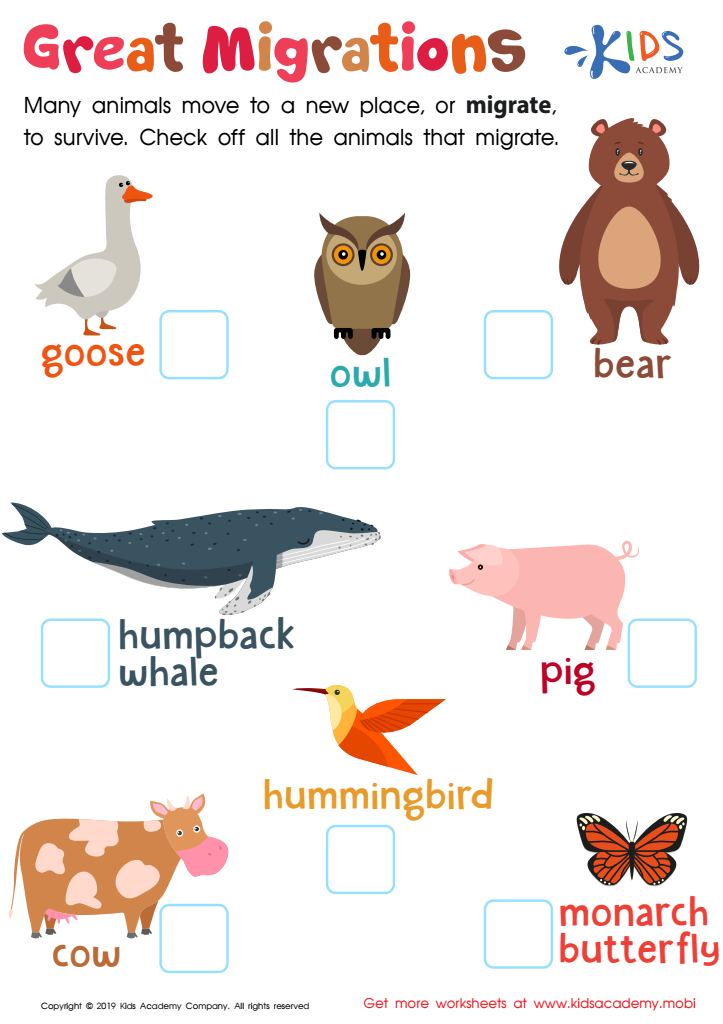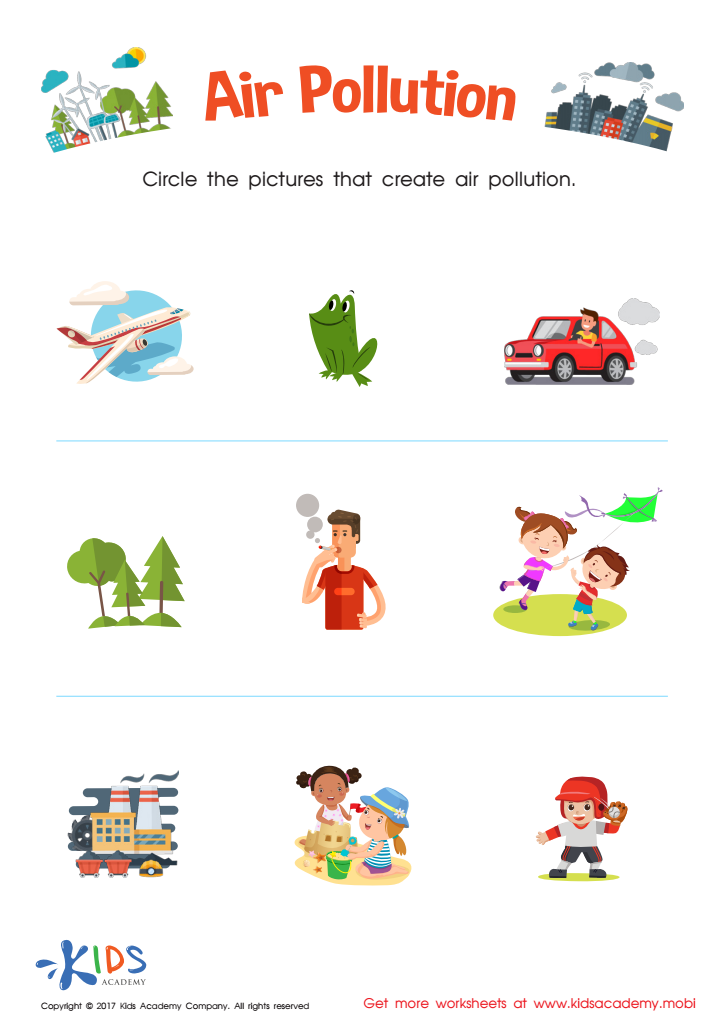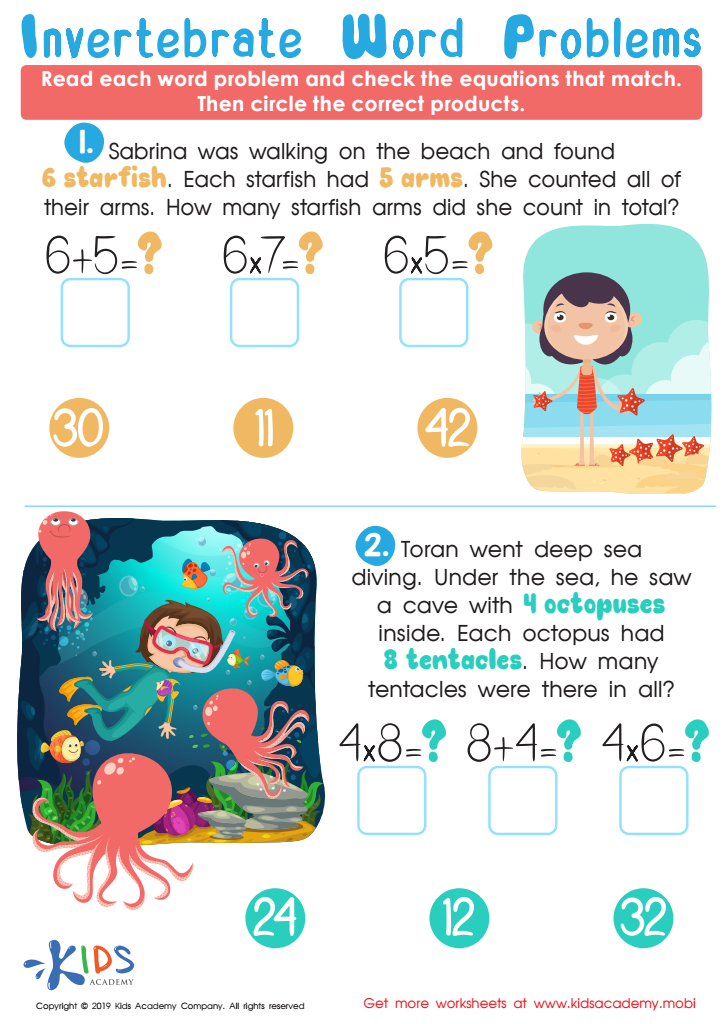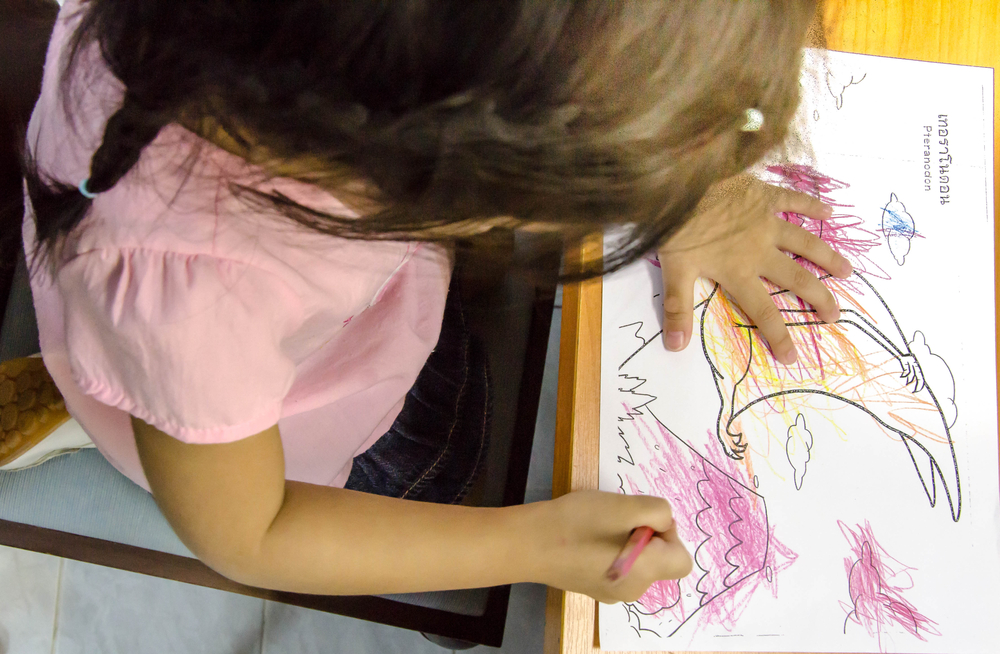Enhancing reading skills Science Worksheets for Ages 4-5
3 filtered results
-
From - To
Discover our "Enhancing Reading Skills Science Worksheets" specially designed for children aged 4-5. These engaging and interactive worksheets fuse the joys of science with essential reading exercises, helping young learners build critical literacy skills in a fun way. Your child will explore captivating topics while developing vocabulary, comprehension, and sentence structure. Our resource promotes curiosity about the world, encourages independent learning, and solidifies fundamental reading concepts. Perfect for parents and educators seeking to support early literacy in a science context, these worksheets are tailored to create a well-rounded educational experience. Unlock your child's potential with our comprehensive learning tools today!


Great Migrations Worksheet


Air Pollution Worksheet


Invertebrate Problems Worksheet
Enhancing reading skills in children ages 4-5 is crucial for several reasons, and parents and teachers play an essential role in this early development. At this age, children are at a critical stage for language acquisition and cognitive growth. Developing strong reading skills lays the foundation for future learning, fostering improved vocabulary, comprehension, and critical thinking abilities.
Engaging in reading activities promotes not only academic readiness but also social and emotional development. Children who are exposed to books and storytelling often demonstrate higher levels of empathy, creativity, and cognitive flexibility. Moreover, nurturing reading skills can bridge the gap for early learners, sparking their curiosity about the world around them, particularly in scientific concepts.
Incorporating science into reading activities engages children in meaningful ways, allowing them to understand natural phenomena, problem-solving, and exploration. Interactive reading experiences that combine stories with scientific ideas can instill a love for learning and prepare them for formal education.
Finally, early investments in reading skills can lead to long-term benefits. Children who read well are more likely to thrive academically, reducing the risk of future literacy challenges. Thus, prioritizing reading skills in young learners is vital for their holistic development and lifelong learning success.
 Assign to My Students
Assign to My Students



















